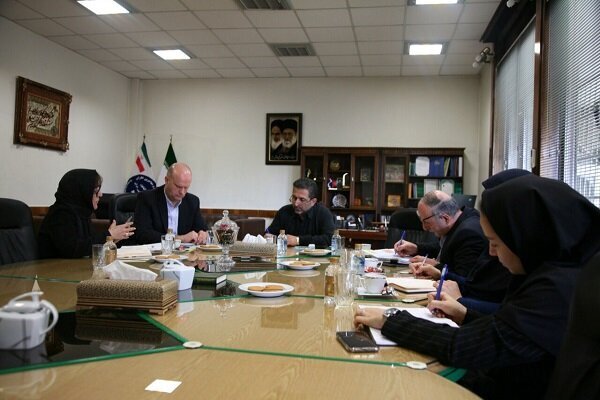UNHCR official lauds Iran's services to refugees

TEHRAN - The UNHCR representative in Iran, Ivo Freijsen, said on Saturday that Tehran's extensive services to asylum seekers and refugees are admirable.
Freijsen made the remarks in a meeting with Mahdi Mahmoudi, head of Iran's Bureau for Aliens and Foreign Immigrants.
Freijsen said in a meeting that was held in Switzerland some time ago the issue of providing services to refuges was raised and it is hoped that a mechanism is devised for more support to Iran as it hosts hundreds of thousands of refugees.
He also said in the current year the UNHCR will try, through cooperation by Iran, Pakistan and Afghanistan, to activate organizations and international bodies active in areas of refugees.
For his part, Mahmoudi said it is hoped that in the current year international organizations draw up a plan for cooperation with Iran because “we believe that in the areas of providing services to refugees greater and better decisions should be taken.”
In May 2019, Iranian Deputy Foreign Minister Abbas Araghchi called on the Western countries not to shrug off their responsibility towards Afghan refugees.
"Supporting immigrants and refugees is an international issue and therefore bearing the responsibilities for them falls upon all countries," Araghchi noted.
Iran has been hosting millions of Afghan refugees since the Soviet Union invaded Afghanistan in 1979. Iran also hosted Iraqi refugees fleeing from Saddam Hussein’s brutality in the late 1980s and early 1990s.
Araghchi said Iran has warmly welcomed immigrants from Afghanistan and other countries over the last 40 years.
Araghchi, however, said international organizations and other governments, especially the Western ones, have been the cause of many sufferings for the Afghan people and should share part of the burden.
The Iranian deputy foreign minister said that it can be done by
Receiving refugees or paying their share are what they can do, the deputy foreign minister said.
"About 468,000 Afghans attend public schools in Iran, each costing the country 600 euros a year, and more than 23,000 college students, each costing 15,000 euros annually," he explained.
The senior diplomat reiterated that expelling refugees is not on the government's agenda. "However,” he said, “should the U.S. sanctions impact Iran's oil sale and reduce its revenues, Iran would have to consider new approaches toward them, hinting that Afghans would likely then look toward Europe for refuge."
In a relevant development in September 2018, Iranian Interior Minister Abdolreza Rahmani Fazli called on the European Union (EU) to help Tehran facilitate refugees' return to their homeland.
"We are trying to achieve a suitable management on the issue of refugees and this needs that both the European Union and the United Nations to concentrate on this issue," Rahmani Fazli said in a meeting with visiting United Nations High Commissioner for Refugees Filippo Grandi in Tehran.
He reiterated that the European countries should feel responsible and give the necessary help for the repatriation of refugees to their countries.
"Iran expects Europe and affluent countries to help cover the costs imposed on host countries by refugees," Rahmani Fazli added.
MJ/PA
Leave a Comment